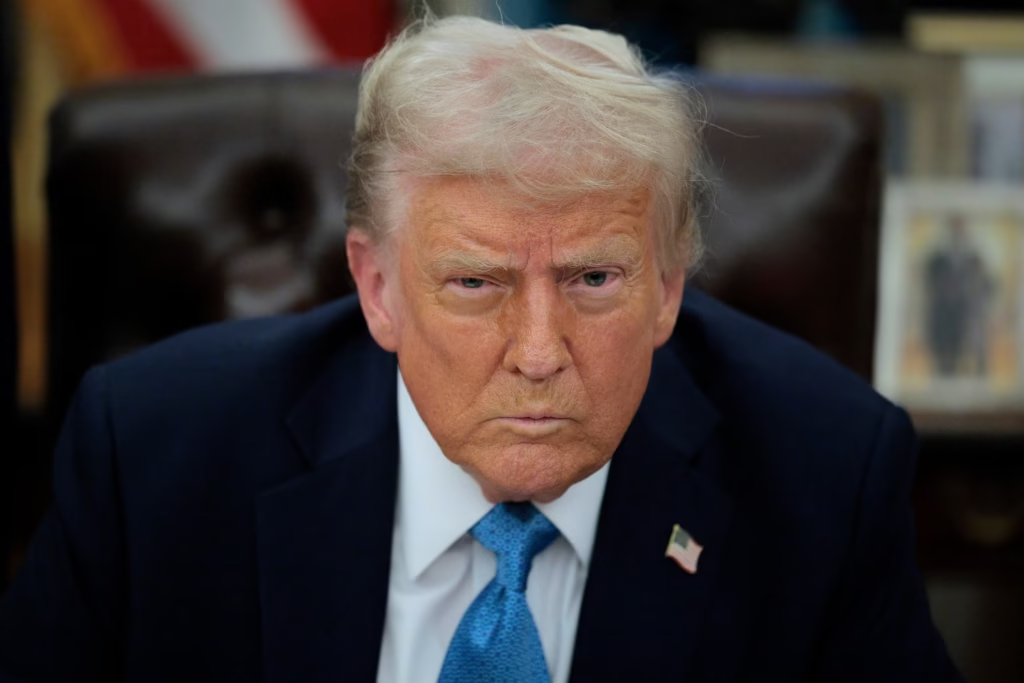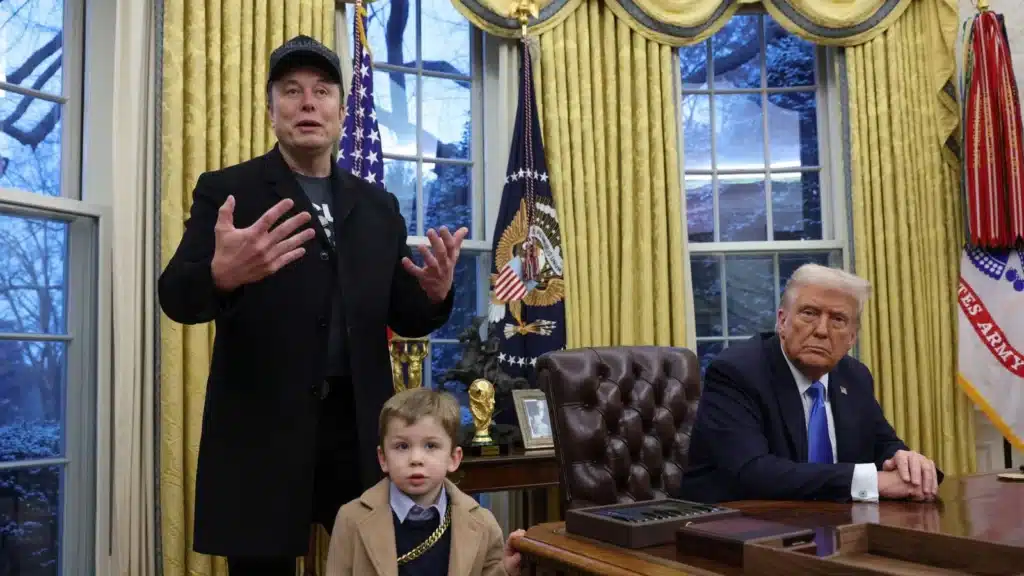WASHINGTON: United States President Donald Trump on Sunday reaffirmed his administration’s focus on boosting domestic manufacturing in high-value sectors such as military equipment and advanced technology, rather than in textiles and apparel.
Speaking to reporters before boarding Air Force One in New Jersey, President Trump backed recent remarks by Treasury Secretary Scott Bessent, who had stated that a “booming textile industry” was not essential for the U.S. economy. The statement had drawn criticism from the National Council of Textile Organizations.
“We’re not looking to make sneakers and T-shirts. We want to make military equipment. We want to make big things. We want to make, do the AI thing,” President Trump said. “I’m not looking to make socks. We can do that very well in other locations. We are looking to do chips and computers and lots of other things, and tanks and ships.”
The president’s comments come amid growing unease within the American apparel industry over his aggressive trade policies. The American Apparel & Footwear Association (AAFA) responded by warning that tariffs continue to burden the sector disproportionately.
“With 97 per cent of the clothes and shoes we wear being imported, and with clothes and shoes already the most highly tariffed industry in the U.S., we need to focus on common sense solutions that can move the needle,” said Steve Lamar, AAFA President, in a statement. “More tariffs will only mean higher input costs for U.S. manufacturers and higher prices that will hurt lower income consumers.”
Mr. Trump’s protectionist trade agenda has remained a cornerstone of his economic policy, often unsettling global markets. On Friday, the president reignited trade tensions with the European Union, proposing a 50 per cent tariff on EU goods beginning June 1. He also warned that Apple Inc. could face a 25 per cent import tax on iPhones sold in the U.S.
However, in a sign of possible conciliation, Mr. Trump extended the tariff deadline on EU goods to July 9, allowing time for negotiations with the 27-member bloc.
President Trump, who won both the 2016 and 2024 elections with significant backing from blue-collar voters, has continued to frame his trade and industrial policies as a corrective to decades of manufacturing decline in the U.S.
His administration has imposed broad tariffs on a range of imported goods since 2018 in a bid to encourage domestic production and reduce reliance on foreign supply chains — particularly in industries deemed critical to national security.
While supporters argue these measures have spurred investment in certain sectors, critics warn that tariffs have led to higher costs for businesses and consumers, particularly in industries reliant on complex international supply chains, such as clothing and footwear.
Read also: Apple shares drop as Trump demands U.S.-made iPhones, rejects India production





